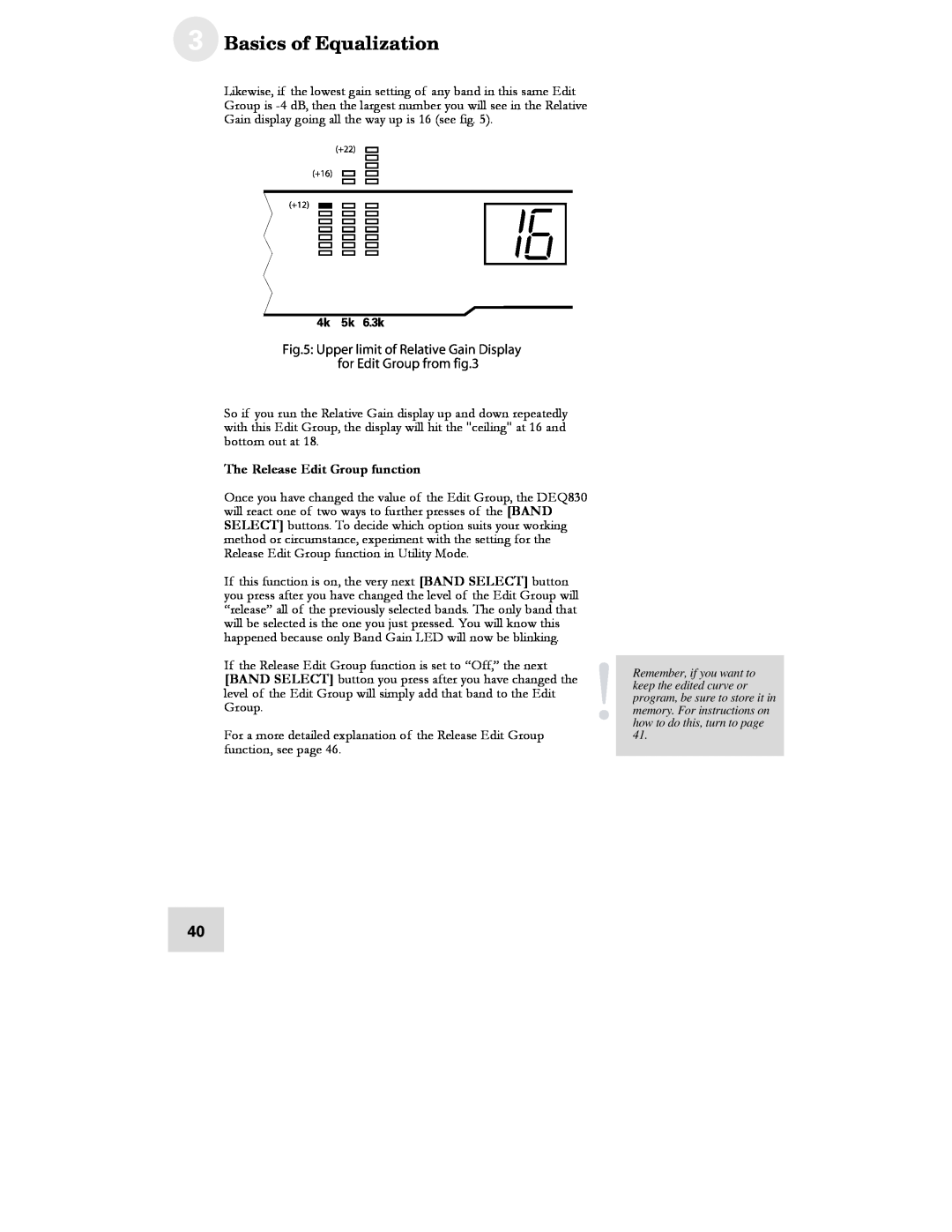
3 Basics of Equalization
Likewise, if the lowest gain setting of any band in this same Edit Group is
So if you run the Relative Gain display up and down repeatedly with this Edit Group, the display will hit the "ceiling" at 16 and bottom out at 18.
The Release Edit Group function
Once you have changed the value of the Edit Group, the DEQ830 will react one of two ways to further presses of the [BAND SELECT] buttons. To decide which option suits your working method or circumstance, experiment with the setting for the Release Edit Group function in Utility Mode.
If this function is on, the very next [BAND SELECT] button you press after you have changed the level of the Edit Group will “release” all of the previously selected bands. The only band that will be selected is the one you just pressed. You will know this happened because only Band Gain LED will now be blinking.
If the Release Edit Group function is set to “Off,” the next [BAND SELECT] button you press after you have changed the level of the Edit Group will simply add that band to the Edit Group.
For a more detailed explanation of the Release Edit Group function, see page 46.
Remember, if you want to keep the edited curve or program, be sure to store it in memory. For instructions on how to do this, turn to page 41.
40
